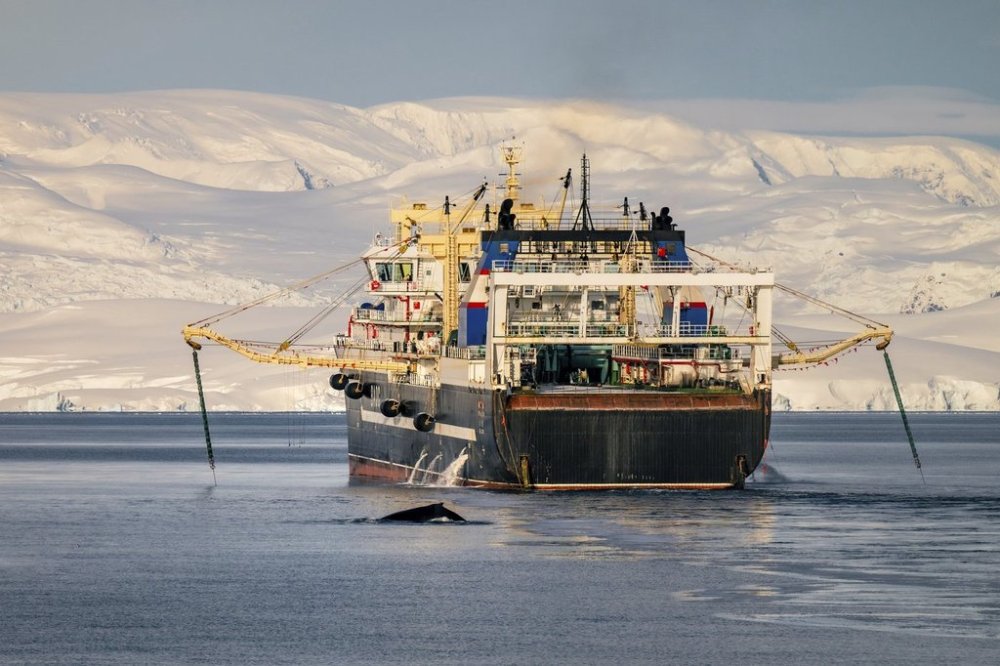Krill fishery in Antarctica shut down after record catch triggers unprecedented early closure
Advertisement
Read this article for free:
or
Already have an account? Log in here »
To continue reading, please subscribe:
Monthly Digital Subscription
$0 for the first 4 weeks*
- Enjoy unlimited reading on winnipegfreepress.com
- Read the E-Edition, our digital replica newspaper
- Access News Break, our award-winning app
- Play interactive puzzles
*No charge for 4 weeks then price increases to the regular rate of $19.00 plus GST every four weeks. Offer available to new and qualified returning subscribers only. Cancel any time.
Monthly Digital Subscription
$4.75/week*
- Enjoy unlimited reading on winnipegfreepress.com
- Read the E-Edition, our digital replica newspaper
- Access News Break, our award-winning app
- Play interactive puzzles
*Billed as $19 plus GST every four weeks. Cancel any time.
To continue reading, please subscribe:
Add Free Press access to your Brandon Sun subscription for only an additional
$1 for the first 4 weeks*
*Your next subscription payment will increase by $1.00 and you will be charged $16.99 plus GST for four weeks. After four weeks, your payment will increase to $23.99 plus GST every four weeks.
Read unlimited articles for free today:
or
Already have an account? Log in here »
MIAMI (AP) — Officials have shut down early the remote krill fishery near Antarctica after trawling for the tiny crustacean — a vital food source for whales that also helps fight climate change — exceeded the seasonal catch limit for the first time.
The unprecedented early closure of the fishery follows a report by The Associated Press last week detailing a record surge in the krill catch after a longstanding conservation framework was allowed to lapse with no plan in place to handle growing pressures in the world’s southernmost fishery.
The Commission for the Conservation of Antarctic Marine Living Resources, or CCAMLR, the international organization that manages the fishery, declined to comment but confirmed the closure earlier this month of the 2024-25 season, which should have extended until December, after fishing hit the 620,000 metric ton limit.

The U.S., Russia, China and two dozen other governments last year failed to approve a new management plan that would have mandated spreading out the area in which krill can be caught and create a California-sized reserve along the environmentally sensitive Antarctic Peninsula.
In the absence of a deal, industrial trawlers were allowed this season to essentially fish anywhere at any time, including in smaller habitats preferred by whales, penguins and seals. In one hot spot, the catch through June 30 was nearly 60% higher than all of last season’s haul, according to an internal CCAMLR report obtained by the AP.
Krill is one of the most abundant marine species in the world, with an estimated biomass of 63 million metric tons. But advances in fishing, climate change and growing demand for krill’s Omega-3 rich oil – for fishmeal, pet food and human dietary supplements — have increased pressure on the krill stocks. In the 2023-24 season, a fleet of 12 trawlers from mostly Norway and China caught 498,350 tons of krill — until now the largest harvest since CCAMLR began collecting catch data in 1973.
Underscoring the competition between humans and whales, three humpback whales were found dead or seriously injured last year in the long, cylindrical nets deployed by the vessels to vacuum up the paper-clip sized crustacean.
Krill aren’t just vital to marine ecosystems. Increasingly, researchers are focusing on their role as a bulwark against climate change. One peer-reviewed study found that krill remove from the atmosphere and store in the ocean 20 million tons of carbon annually. That’s the equivalent of taking off the road 5 million cars every year.
—
This story was supported by funding from the Walton Family Foundation. The AP is solely responsible for all content.
__
Contact AP’s global investigative team at Investigative@ap.org or https://www.ap.org/tips/

